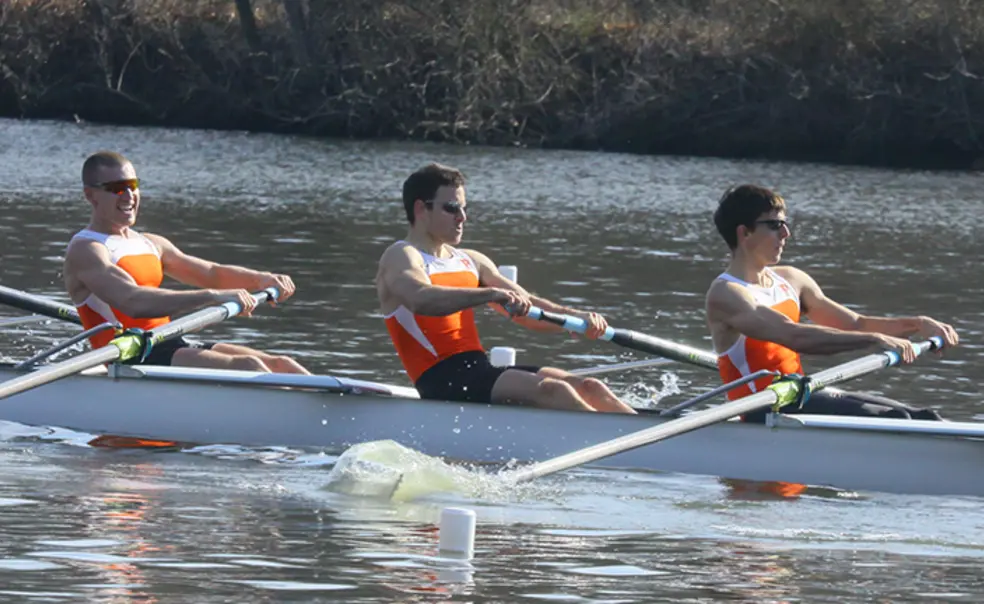The Road to Rio: Together Again, This Time for the Red, White, and Blue
Robin Prendes ’11 and Tyler Nase ’13
In high school, rower Tyler Nase ’13 was part of a U.S. crew that won bronze at the World Junior Championships. He got used to hearing the coaches who were recruiting him say how great he’d be in college.
But Greg Hughes ’96, currently head coach of the Princeton heavyweight men and the Tigers’ lightweight coach at the time, “took a completely different approach,” Nase recalls. “He told me he had guys like Robin Prendes [’11] ... who would beat me if I wasn’t on top of my game.”
When Nase joined the Princeton team, he found in Prendes a valuable role model: “Whatever he said, I was willing to do.” And Prendes saw in the newcomer a remarkable competitive spirit: “You could always tell with Tyler that he wouldn’t give up.”
Seven years, later Prendes and Nase are teammates again on the U.S. men’s lightweight four, and this week, they’ll fly to Rio de Janeiro to represent their country at the Olympics.
Making the U.S. team was a pressure-filled process, particularly in the last year. “From September through April, every day counted, every practice counted,” Nase says. Prendes, a 2012 Olympian, was not selected to the U.S. lightweight four for last year’s World Rowing Championships. He raced in the lightweight pair — a non-Olympic event — and then worked his way back onto the four earlier this year.
Now that the team is set, some of that tension has lifted, as the rowers have shifted their focus to Rio. “It feels kind of like reading period,” Prendes explains. “You’re done with classes, but you still have to study and prepare for the final.”
Since May, the crew has been training in Princeton — a happy homecoming, says Nase, who loves rowing on the flat water of Lake Carnegie and seeing familiar faces at the boathouse. The only downside? Now that the rowers are trimming down to their competition weight of 154 pounds, they have to avoid some of their favorite local foods (in Nase’s case, Conte’s pizza and Thomas Sweet ice cream).
Prendes says this is likely his last summer training in Princeton. He worked in data analytics at Devon Energy for the first three years of the Olympic cycle, and he’s looking forward to a transition from competitive athletics to a new career. A visit to the medal stand in Rio would be a welcome stop along the way.












No responses yet